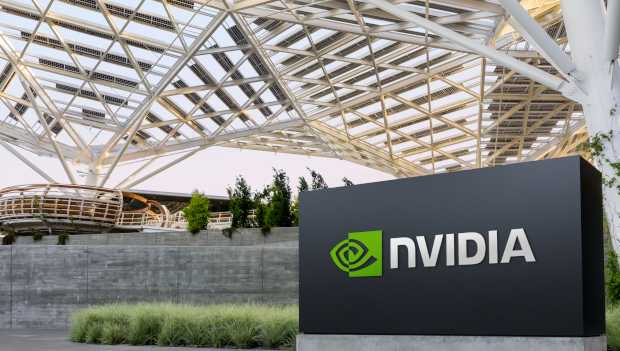
30 August 2024 Shares in chip designer Nvidia dropped by almost 6% yesterday, wiping some $200 billion (about €180 billion) off the company’s valuation. The fall for the company, which has profited handsomely from the artificial intelligence (AI) boom, came despite it publishing quarterly results showing revenue and profits were marginally higher than analyst expectations: indeed, Nvidia saw a 122% rise in second-quarter revenues compared with the same period last year. Set against its rise – at its peak the company’s shares rose by over 800% since the start of 2023 – a 6% drop is nothing, and in fact had long been predicted.
The problem for Nvidia is that parabolic rises can’t go on forever: such was the scale of Nvidia’s price jump that investors required it not only to beat expectations but shatter them again and again and again. This is simply not possible. What is important to note, however, is that Nvidia’s stumble did not drag other tech companies down, which is a genuine concern given the current overconcentration of the US stock market.

Nearly a third of the S&P 500 index of the largest companies in the US consists of just seven stocks: Apple, Microsoft, Nvidia, Meta Platforms which owns Facebook, Google parent company Alphabet, and Tesla. With the exception of Tesla, all of these boomed during 2023 and 2024 and in doing so masked an otherwise mediocre performance for the US stock market, thus posing the question: what would happen if there was a tech market crash? The short answer is that it would be bad. However, a repeat of the 2001 dotcom bust is not quite on the cards.
Measured by its profits, Nvidia remains overvalued but it, and the rest of the so-called Magnificent Seven, are all extremely profitable companies (Tesla is without a doubt the wobbliest of the bunch). In 2001 this was not the case, with the dotcom charge led by companies that had never posted a profit, followed by others that stuck words like ‘Internet’ in their names in the hope of being carried along on the hype wave. Today, the problem with the tech giants is not that they are bad companies, but that expectations are too high.
AI has given all of them a boost, with investors hoping that otherwise fatigued consumers bored with new phones and growing weary of social media, not to mention still feeling the pain of 2023’s inflation and its attendant interest rate rises, will go out and spend more money on new gear and subscribe to new services. Nvidia in particular saw an explosive rise as demand for its chips in data centres went through the roof due to AI’s massive computation needs. While its drop this week can, and indeed should, be dismissed as mere noise following the publishing of quarterly results, the macro picture offered by the stock market tells us, firstly, that the AI spending boom will have to produce results soon and, secondly, that the growing concentration of investment in technology companies is not healthy.
Read More: Blog Blogs Jason Walsh Nvidia Results.













